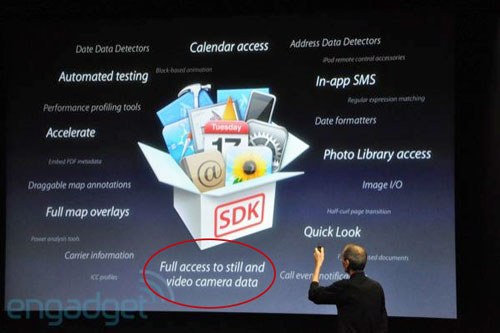Smartbooks have failed to materialise due to delays in Flash optimisation, a lower-than-expected uptake of Linux on netbooks, and the sudden emergence of tablets, ARM's marketing chief has said.
ARM dominates the mobile phone chip design market and has since 2008 been trying to get into the subnotebook market as well. The plan was to do so through Linux-based, ARM-powered 'smartbooks' that would provide an instant-on, longer-life alternative to x86-based netbooks but, according to ARM's marketing vice president, Ian Drew, events have conspired to stall this plan.
"We thought [smartbooks] would be launched by now, but they're not," Drew told ZDNet UK on Tuesday. "I think one reason is to do with software maturity. We've seen things like Adobe slip — we'd originally scheduled for something like 2009."
ARM and Adobe signed a partnership in late 2008 that was intended to see Flash Player 10 and Air — both rich web platforms — optimised for ARM-based systems. That work is only likely to come to fruition in the second half of this year, when an optimised version of Flash comes out for Android smartphones. As Apple's Steve Jobs recently pointed out, Flash was originally supposed to ship for smartphones in early 2009.
"Our target is mostly internet machines — it becomes sort of a requirement that they run the internet," Drew said. "[The delay in optimising] Flash has stalled it".
Drew suggested that solving the issue of Flash optimisation had involved "lots of heavy lifting" but once the new version of Adobe's rich media software is in place for smartbooks, that would be "very powerful" for ARM.
In March, another ARM executive suggested that more than 50 ARM-based tablets would be released later this year. According to Drew, the sudden explosion of interest in the tablet form factor had "confused" some manufacturers that had been considering ARM-based smartbooks, which tend to resemble laptops, thus further delaying smartbooks' advent.
"Some of it is also related to there not being many Linux [netbooks] out there either," Drew added, pointing out that ARM's architecture cannot support x86-based applications from the PC. "We've only got Linux. If you look at forecasts for Linux netbook sales last year, not as many were sold."
However, Drew said he was "far from disappointed" with ARM's smartbook development experience thus far. "I actually think we're a lot stronger because of it," he said. "We now know what we didn't know two years ago. It has taught us a lot about how we work with software companies."
"I am disappointed that you can't go down to PC World and buy a smartbook at the moment, but I'm convinced something will happen," Drew said.
Asked if the smartbook delays had anything to do with performance relative to Intel's netbook-dominating Atom chipset, Drew said he had "not seen that one come up once" in discussion with manufacturers.
Drew's comments came as Intel detailed its Moorestown chipset, a version of Atom that is tailored for smartphones and tablets. Moorestown's arrival later this year — around the same time as smartbooks hit the market — will ensure competition between ARM and Intel in each company's stronghold: respectively, the smartphone and the subnotebook.







